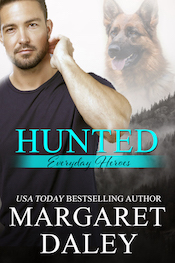Point of View
Point of view can be a hot topic with some authors. Some people are purist and only want one point of view per scene or chapter. Others like to hop from head to head. I fit in between those two. I often am only in one person’s head during a scene, but there are times I move from the heroine’s viewpoint to the hero’s in a scene without a break. I do try not to hop around because I believe that can be confusing for a reader. But what I think is the most important part concerning point of view is how deep the writer goes into a character’s viewpoint. That’s what I would like to address in this short column. When you are writing a character and are in his (or her) viewpoint, you need to be totally immersed inside his head. I want to feel, see, hear, taste what he...
Nuts and Bolts
For my last how to column I wanted to discuss some of the “nuts and bolts” of this writing business. Some of my observations and lessons I’ve learned over the twenty-five years I have been writing. 1. Talent is important but equally or more important is perseverance with some luck thrown in. 2. Rejection is part of writing and sending your work out. We have to learn to move on and not let it stop us from writing. I have seen some very talented writers give up because of rejection (refer back to number one). Have a support group to help you through the rejections. We all need it from time to time. You should see my file of rejections! 3. Set a schedule to write. If not, it is easy to get sidetracked. Life happens. 4. The second sale is often harder than the first....
Under How To columns for FHL newsletter: Characterization
When Jessica asked the chapter to let her know what kind of articles and columns we would like to see in the newsletter, I emailed her about possibly having a how to column to address the various writing subjects that writers are interested in. She asked me to do one as a guest columnist for 2004, then hopefully another published writer will be the guest columnist for next year. Now what I would like from the members are suggestions on what subjects you would like me to discuss. Below I am going to wet your appetite concerning characterization but there are so many aspects of the subject that can be explored–not to mention other subjects that can be covered like goal setting, organization, point of view, conflict, synopsis writing, brainstorming,...
Plotting
Next to characterization I think the plot is the most important element in a story. You can create wonderful characters, but if you have them doing dull, uninteresting things then you will lose your reader. So how do you develop that compelling plot that will keep your readers glue to your book? There are many ways to go about plotting your story. To me plotting is like putting together one huge jigsaw puzzle one piece at a time. Some people start out writing their book from a detailed outline and some by the seat of their pants, letting scene after scene come to them as they develop the story on the computer. I do a little of both. I have a story arc written down with the high points and how I am going to get there. I kind of think of it as climbing several...
Visualizing Your Plot
The definition of plot from Webster’s New World Dictionary is “the arrangement of incidents in a play, novel, narrative poem, etc.” In other words a plot is a series of scenes that build on one another. The characters and plot should intertwine seamlessly. The plot is a series of conflicts (testing your characters) which leads to changes–growth hopefully in your characters. Action——–Reaction———Choice———Action——–Reaction (a circle) When we are talking about a plot, I am compelled to say: SHOW DON’T TELL. You might study some of your favorite movies. A movie has to show you what is going on. It’s the nature of the beast. Also, while you’re at it, study books on your keeper shelf to see...
My Worst Rejection
I’m not going to cite one rejection but instead talk about some of the rejections (and I have many over the twenty-three years I’ve been actively writing) I’ve received that have bothered me the most. Two types of rejections stand out in the crowd. The first one is the very impersonal one. We all labor over our work, and when we receive a form letter telling us nothing but that they didn’t want our book, that is hard. Feedback, especially an editor’s, is helpful to a writer. But I think the worse kind is the rejection where you nearly sell the book and miss by a hair. Of course, there are comforting aspects to that kind of rejection, but to be so close and not make it, leaves a more lasting impression (hope mixed with lots of frustration) than any other type of...



